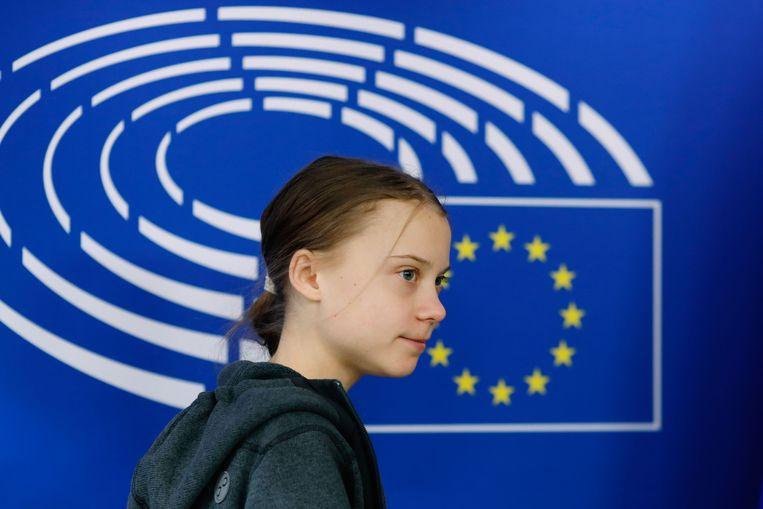The European Commission today proposed a new “climate law”, which requires EU countries to achieve net-zero emissions by 2050. Swedish climate activist Greta Thunberg, who is present in the European Commission today, says that more action is needed to combat the climate crisis.
The climate law must ensure that the EU member states “stay focused and disciplined on the right path”, said European Commission vice-president Frans Timmermans at the presentation of the first European climate law. The bill forms the legal basis for the Green Deal that EU leaders concluded in December for the transition to a climate-neutral economy in 2050.
The law still needs to be approved by the European Parliament, and then by all Member States. But if the bill comes, all 27 countries are obliged to reduce their greenhouse gas emissions to net-zero by 2050.
Limit heating to 1.5 ° C
With the new law, the EU hopes to limit global warming to 1.5° Celsius. The new law sets the goal for the entire European Union. This creates the possibility that other countries can make more effort by 2050 to only reduce their emissions after 2050.
Vice-president Timmermans will present proposals for a new target for 2030 in September, which will then be included in the climate law. Until now, it was agreed to reduce CO2 emissions by 40 percent in 2030 compared to 1990, but the committee is investigating whether this percentage can be increased to 50 to 55.
Every five years after 2030, the committee wants to evaluate progress and, if necessary, adjust the climate goals in 2035, 2040 and 2045 as quickly as possible, without lengthy procedures via the Council of Ministers and the European Parliament.
Same as giving up
The Swedish activist, Greta Thunberg, is not impressed by the law. According to her, the law forgets to draw up a plan for the next ten years. “Net-zero emissions by 2050 means the same as giving up,” she says, together with 33 other climate activists in an open letter.
“We don’t just need goals for 2030 or 2050. We need goals for 2020 and for every month and year that comes.” She also calls the new European climate law a “capitulation”. According to the Swedish, it is no more than a sham solution from the European Commission.
Misunderstanding by other organizations and parties
Other political parties and organizations in Europe are also critical of the law of EU Commissioner Frans Timmermans. The lack of ambitious measures to reduce emissions is incomprehensible. According to Greenpeace, the EU is wasting precious time. The World Nature Fund believes that the plan is too good, and should contain more drastic measures.
In the meantime, Timmermans has already said that the measures included in his climate law will “require enormous efforts” and that the impact must, therefore, be thoroughly mapped out first. “That’s why we don’t want to make a light-hearted decision. Otherwise, we would have endless discussions.” The investigation has since started. The interim target may not follow until September.
Member States remain in control
There was also criticism that after 2030 the European Commission would be given too much power to amend the law, and to strengthen instruments for this, Timmermans contradicted. “The European Parliament and the Member States remain in charge of legislative decisions,” he said. This concerns, for example, rules for the energy emissions of buildings or the trade-in CO2 rights.
“Adjustments are an essential element of our strategy,” Timmermans continued. Forest fires, failed harvests, and floods show that according to him. “Someone has to determine if we are still on course.”
Climate change is a “huge and existential problem”. In the fight against this, Timmermans asked “partners worldwide to accompany us on this journey. I like being in a competition where everyone wins. ”
